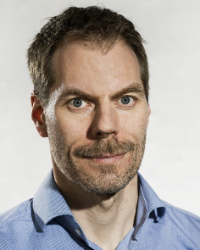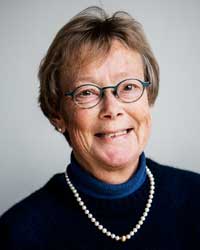The Danish National Research Foundation invests DKK 120 million in two new centres at DTU.
Two new basic research centres are to ensure DTU and Denmark a leading international position within research into microorganisms and macroscopic quantum technology, respectively.
The two new so-called Centers of Excellence will provide a major boost for basic research in technology and natural sciences at DTU.
“We’re pleased to establish two new basic research centres within areas with such significant social impact. Both quantum technology and research into microorganism production of antibiotic substances are areas seeing rapid development and where new research breakthroughs can be of decisive importance for medical treatment and for the entire structure of our information society,” says DTU’s Dean of Research Katrine Krogh Andersen.
“And I’m in no doubt that our strong collaboration with the corporate sector will enable Danish companies to benefit from the new research centres to create further innovation and growth.”
The Danish National Research Foundation recently announced the ten areas of research to receive funding. A total of DKK 600 million will be invested in ten new Centers of Excellence—two of which are located at DTU. The centres will be established for a six-year period with the option of a four-year extension for which a further DKK 400 million have been earmarked.
DTU currently has five Centers of Excellence funded by the Danish National Research Foundation.
DTU's two new Centers of Excellence:

Professor Ulrik Lund Andersen heads up the Center for Macroscopic Quantum States.
Photo: Joachim Rode
|
|
Macroscopic quantum technology
Professor Ulrik Lund Andersen, Center for Macroscopic Quantum States, is receiving up to DKK 63 milion from the Danish National Research Foundation.
We are currently witnessing an international race for the development of new systems that are best suited for isolating and managing quantum objects. Professor Ulrik Lund Andersen is part of the field’s leading group. In particular, he is leading with expertise within generalized quantum measurements and quantum information processing in optical and solid state physical systems.
The centre set-up enables the combination of three technological platforms in one single laboratory; quantum optics, opto-mechanics, and colour centres in diamond. This combination does not exist anywhere else in the world, and with this particular combination Ulrik Lund Andersen expects to be able to create completely new macroscopic quantum states of light and solid states, which will allow the exploration of the frontier between classical physics and quantum physics leading to revolutionary new technologies within communication, computers, and sensing. The absurdities and the non-intuitive nature of quantum mechanics, which may at first look like unworldly academic shenanigans, may very well contain the seeds of new scientific breakthroughs and a revolution of the information society.
|

Professor Lone Gram head up the new Center of Excellence for Microbial Secondary Metabolites.
Photo: Joachim Rode
|
|
Microorganism production of antibiotic substances
Professor Lone Gram, Center of Excellence for Microbial Secondary Metabolites, is receiving up to DKK 58 million from the Danish National Research Foundation.
Microorganisms are fundamental to our existence, and the Center of Excellence for Microbial Secondary Metabolites will explore a new microbiological dimension. The centre’s work will have a major impact on all areas where we exploit or combat microorganisms. They convert organic substances in all ecosystems and is the foundation for all life. Many microorganisms can cause illness while others have beneficial effects. The centre will focus on exploring the secondary metabolites of microorganisms, and it is very likely to pave the way for the discovery of microbial bioactive molecules and provide new opportunities for the development of microorganisms as biotechnological cell factories.
The Center of Excellence for Microbial Secondary Metabolites aims to establish what effect microbial secondary metabolites have on other microorganisms in their natural environment. We have traditionally perceived them as ‘in-competition substances’ , but in natural environments they are rarely produced in quantities of antibiotic effect.
The Center’s hypothesis is that the secondary metabolites constitute a network of signal molecules that directly affect the genetic expression, behaviour, and metabolism of the microorganisms and thus play a decisive role in the composition and function of microbiological societies. We will explore this in an interdisciplinary collaboration with the use of sequence-based, analytical-chemical, molecular, bioinformatic, and classic microbiological methods.
|
Cosmic Dawn Center (DAWN) is a new basic research centre whose main purpose is to uncover how and when the first galaxies formed. DAWN is a Center of Excellence funded by the Danish National Research Foundation and located at the Niels Bohr Institute at the University of Copenhagen in close collaboration with DTU Space.
The two institutes get unique access to data from new super space telescopes and will work closely together to investigate and answer some of the big questions about our Universe: such as when did the first stars, galaxies, and black holes form?
"The close cooperation opens up great opportunities for Danish researchers to be at the forefront of research in the early development of the Universe. It is a project that reaches well into the future, and thus can also benefit younger researchers, "says Hans Ulrik Nørgaard-Nielsen, senior researcher at DTU Space, who is responsible for DTU's share of the project.
The Center is located at the Niels Bohr Institute at the University of Copenhagen and is headed by Associate Professor Sune Toft.